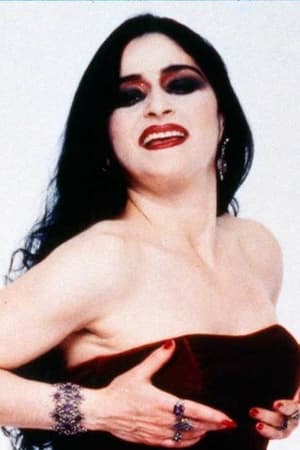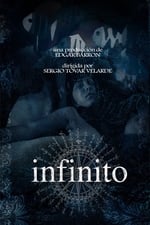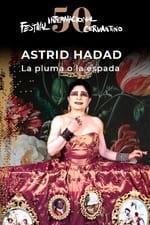Personal Info
Known For Acting
Known Credits 14
Gender Female
Birthday February 26, 1957 (67 years old)
Place of Birth Chetumal, Quintana Roo, Mexico
Also Known As
- -
Content Score
100
Yes! Looking good!
Login to report an issue
Biography
From Wikipedia, the free encyclopedia.
Astrid Hadad is a well-known Mexican actress and performance artist. She was born in January 4, 1957, Chetumal, Quintana Roo, Mexico. She attended the National Autonomous University of Mexico, originally planning to major in political science and journalism but then changing to theatre. After appearing in a number of shows, she came to the fore in 1985 in Donna Giovanni, an all-female adaptation of Mozart's opera, which was directed by Jesusa Rodríguez and became a great hit in Europe. It closed after its 500th performance, in the Palacio de Bellas Artes in Mexico City. Parallel to these activities, she created two shows of her own (Nostalgia Arrabalera and Del Rancho a la Ciudad). This led to her producing and starring in the tragicomic musical La Occisa or Luz, Levántate y Lucha based on the life of Mexican singer Lucha Reyes.
Out of this production came her collaboration with the musical group that has accompanied her since, Los Tarzanes. Together, they have created various performances (La Mujer Ladrina, Apocalipsis Ranchero, La Mujer del Golfo, etc.). Astrid has also starred in TV soaps and in the film Sólo con tu pareja.
In her Heavy Nopal show, Astrid makes use of iconic references, not just as scenery (the cactus, the rock, the pyramid, the tequila bottle), but also on her own body, becoming not only the stage, but also an altar. From the calla lilies to the extremely-complex surprise-multi-purpose outfits to the innumerable ornaments, "rebozos", virgins of Guadalupe, guns, and common places in the essence of Mexico. Someone once described Astrid as a "walking museum of popular cultures."
Pecadora is a comic show that has women as a central theme, using Mary Magdalene, sinner par excellence, as the leading thread. It is a show that aims at rescuing the passion from the dangers of extinction where it can be currently found. In it, Astrid retakes the spirit of the rumberas, the soul of the rancheras and the historical body of everything Mexican. Of course, all this seasoned with a loud wardrobe, where hearts, gigantic eyes, turquoise-blue dresses and an old lantern, among others, play before the eyes of the audience.
In Sol y Sombra, taking as an excuse the novel Dr. Jekyll and Mr. Hyde, Astrid presents a show where, setting the forces of evil against those of goodness, she leads us to reflect on (through her sense of humor) our inner ghosts as well as on the joys of life. This show boasts a very colorful wardrobe and scenery, in which the use of "papel picado" is an important stage element. ("Papel picado" is a thin colored paper with different shapes cut out, used as a decoration on holidays in Mexico.) As for this show it requires an arch-shaped structure to hang from as part of the scenery and the show, it is somewhat bulky to carry.
The last performance of the show called "Oh-diosas", (which is a play on words meaning something like "bitchies / Oh - goddesses") was at the end of the month of July 2006 in Mexico City, in one of the boroughs called Colonia Condesa. Other shows by Hadad include Corazón sangrante and La multimamada.
Description above from the Wikipedia article Astrid Hadad, licensed under CC-BY-SA, full list of contributors on Wikipedia.
From Wikipedia, the free encyclopedia.
Astrid Hadad is a well-known Mexican actress and performance artist. She was born in January 4, 1957, Chetumal, Quintana Roo, Mexico. She attended the National Autonomous University of Mexico, originally planning to major in political science and journalism but then changing to theatre. After appearing in a number of shows, she came to the fore in 1985 in Donna Giovanni, an all-female adaptation of Mozart's opera, which was directed by Jesusa Rodríguez and became a great hit in Europe. It closed after its 500th performance, in the Palacio de Bellas Artes in Mexico City. Parallel to these activities, she created two shows of her own (Nostalgia Arrabalera and Del Rancho a la Ciudad). This led to her producing and starring in the tragicomic musical La Occisa or Luz, Levántate y Lucha based on the life of Mexican singer Lucha Reyes.
Out of this production came her collaboration with the musical group that has accompanied her since, Los Tarzanes. Together, they have created various performances (La Mujer Ladrina, Apocalipsis Ranchero, La Mujer del Golfo, etc.). Astrid has also starred in TV soaps and in the film Sólo con tu pareja.
In her Heavy Nopal show, Astrid makes use of iconic references, not just as scenery (the cactus, the rock, the pyramid, the tequila bottle), but also on her own body, becoming not only the stage, but also an altar. From the calla lilies to the extremely-complex surprise-multi-purpose outfits to the innumerable ornaments, "rebozos", virgins of Guadalupe, guns, and common places in the essence of Mexico. Someone once described Astrid as a "walking museum of popular cultures."
Pecadora is a comic show that has women as a central theme, using Mary Magdalene, sinner par excellence, as the leading thread. It is a show that aims at rescuing the passion from the dangers of extinction where it can be currently found. In it, Astrid retakes the spirit of the rumberas, the soul of the rancheras and the historical body of everything Mexican. Of course, all this seasoned with a loud wardrobe, where hearts, gigantic eyes, turquoise-blue dresses and an old lantern, among others, play before the eyes of the audience.
In Sol y Sombra, taking as an excuse the novel Dr. Jekyll and Mr. Hyde, Astrid presents a show where, setting the forces of evil against those of goodness, she leads us to reflect on (through her sense of humor) our inner ghosts as well as on the joys of life. This show boasts a very colorful wardrobe and scenery, in which the use of "papel picado" is an important stage element. ("Papel picado" is a thin colored paper with different shapes cut out, used as a decoration on holidays in Mexico.) As for this show it requires an arch-shaped structure to hang from as part of the scenery and the show, it is somewhat bulky to carry.
The last performance of the show called "Oh-diosas", (which is a play on words meaning something like "bitchies / Oh - goddesses") was at the end of the month of July 2006 in Mexico City, in one of the boroughs called Colonia Condesa. Other shows by Hadad include Corazón sangrante and La multimamada.
Description above from the Wikipedia article Astrid Hadad, licensed under CC-BY-SA, full list of contributors on Wikipedia.
Acting
|
||||||
|
||||||
|
||||||
|
||||||
|
||||||
|
||||||
|
||||||
|
||||||
|
||||||
|
||||||
|
Sound
|








